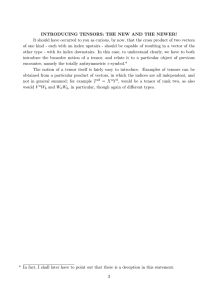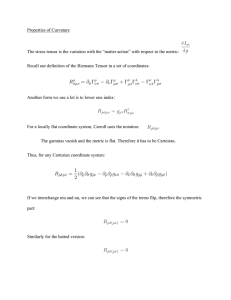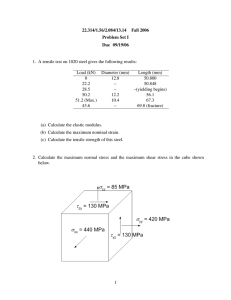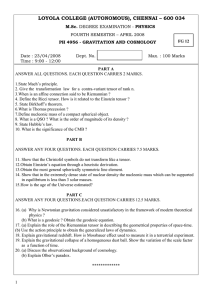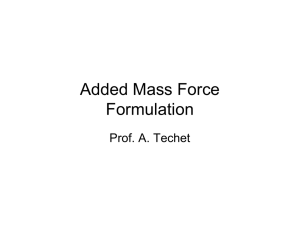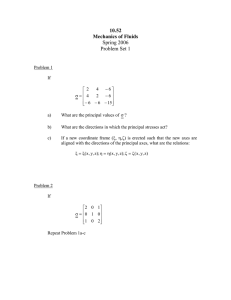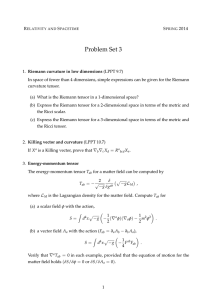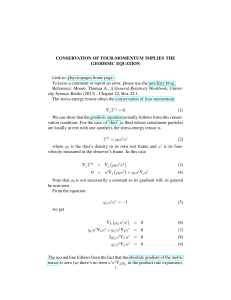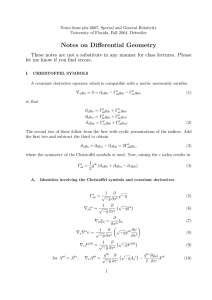GR5 Tensors (1) A tensor in space-time satisfies Tabcde = T[abcde
advertisement
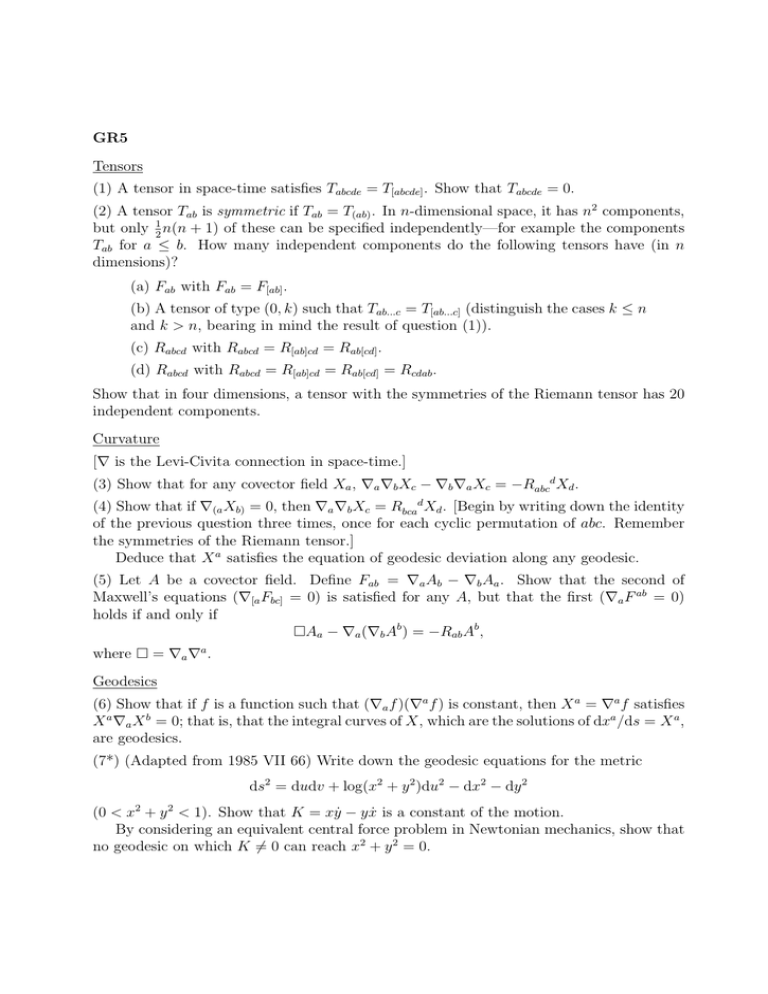
GR5 Tensors (1) A tensor in space-time satisfies Tabcde = T[abcde] . Show that Tabcde = 0. (2) A tensor Tab is symmetric if Tab = T(ab) . In n-dimensional space, it has n2 components, but only 21 n(n + 1) of these can be specified independently—for example the components Tab for a ≤ b. How many independent components do the following tensors have (in n dimensions)? (a) Fab with Fab = F[ab] . (b) A tensor of type (0, k) such that Tab...c = T[ab...c] (distinguish the cases k ≤ n and k > n, bearing in mind the result of question (1)). (c) Rabcd with Rabcd = R[ab]cd = Rab[cd] . (d) Rabcd with Rabcd = R[ab]cd = Rab[cd] = Rcdab . Show that in four dimensions, a tensor with the symmetries of the Riemann tensor has 20 independent components. Curvature [∇ is the Levi-Civita connection in space-time.] (3) Show that for any covector field Xa , ∇a ∇b Xc − ∇b ∇a Xc = −Rabcd Xd . (4) Show that if ∇(a Xb) = 0, then ∇a ∇b Xc = Rbcad Xd . [Begin by writing down the identity of the previous question three times, once for each cyclic permutation of abc. Remember the symmetries of the Riemann tensor.] Deduce that X a satisfies the equation of geodesic deviation along any geodesic. (5) Let A be a covector field. Define Fab = ∇a Ab − ∇b Aa . Show that the second of Maxwell’s equations (∇[a Fbc] = 0) is satisfied for any A, but that the first (∇a F ab = 0) holds if and only if Aa − ∇a (∇b Ab ) = −Rab Ab , where = ∇a ∇a . Geodesics (6) Show that if f is a function such that (∇a f )(∇a f ) is constant, then X a = ∇a f satisfies X a ∇a X b = 0; that is, that the integral curves of X, which are the solutions of dxa /ds = X a , are geodesics. (7*) (Adapted from 1985 VII 66) Write down the geodesic equations for the metric ds2 = dudv + log(x2 + y 2 )du2 − dx2 − dy 2 (0 < x2 + y 2 < 1). Show that K = xẏ − y ẋ is a constant of the motion. By considering an equivalent central force problem in Newtonian mechanics, show that no geodesic on which K 6= 0 can reach x2 + y 2 = 0.
